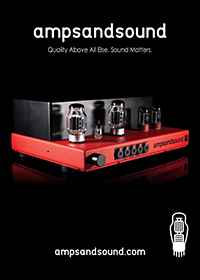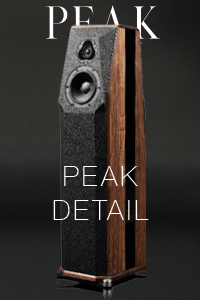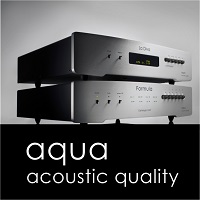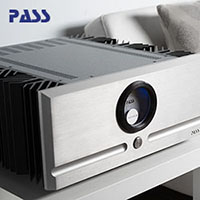 What started as a one-off unit intended as a family birthday gift has blossomed into a full-fledged audio equipment manufacturer. Hong Kong’s Clones Audio now counts monoblocks and a DAC among its product roster, but its 25i amplifier ($865/€629) is what jump-started the boutique manufacturer. The 25i, which is a 25 watts-per-channel integrated amplifier, was inspired by a 47 Labs’ circuit design that later landed in the public domain for the DIY crowd. After all, not everyone would see the $3,000-plus asking price of the 47 Labs’ Gaincard amp without wincing—and some might double over in pain upon seeing its internal part count.
What started as a one-off unit intended as a family birthday gift has blossomed into a full-fledged audio equipment manufacturer. Hong Kong’s Clones Audio now counts monoblocks and a DAC among its product roster, but its 25i amplifier ($865/€629) is what jump-started the boutique manufacturer. The 25i, which is a 25 watts-per-channel integrated amplifier, was inspired by a 47 Labs’ circuit design that later landed in the public domain for the DIY crowd. After all, not everyone would see the $3,000-plus asking price of the 47 Labs’ Gaincard amp without wincing—and some might double over in pain upon seeing its internal part count.
This shoebox amplifier’s genetic connection to the circuit design from 47 Labs’ founder Kimura-San makes the 25i a proper Gainclone. Little wonder then that Clones founder Funjoe went with a brand name that connotes body doubling. His integrated amp mirrors the Gaincard’s short-as-possible signal paths and broader emphasis on circuit simplicity. None of the 30 dB gain comes from the pre-stage; it is only present for input selection, of which there are three. At the business end of the 25i is an in-house-designed board that houses Texas Instruments LM3875 amplifier on a chip.
Funjoe describes his clone as using “no protection print oil to enhance clarity of sound image and musicality.” That’s funny because clarity is also the first descriptor that comes to mind when trying to encapsulate the sound of the 25i. The other word that keeps surfacing is fruity. The 25i offers solid punch, dynamics and tonal color. It’s possibly not quite as zippy as Peter Daniel’s similarly Gaincloned Patek integrated amp, but the 25i fleshes out more acoustic mass to keep the trade-off seesaw perfectly balanced.

Comparisons
First up: the REDGUM RGi60, which is made in Melbourne and is somewhat of a reference at Darko HQ Down Under. The 25i trades in some acoustic mass for upper-midrange zip and caffeination, which lends it that sports-car vibe: a speedy ride with the top down. The REDGUM is warmer, more majestic and better suited to source material like the valium-drenched sound of Lampchop’s Nixon. Conversely, Morrissey’s Your Arsenal really benefits from the Clones’ keener energy with transients that, via the REDGUM, come across as softer and more rounded.
The 25i looks down its nose at the NAD D 3020. The little Gaincloner is an altogether more refined and nuanced listen that those with more luxurious transducers are likely to appreciate. This by no means negates the NAD’s far more impressive feature-driven bang for buck, but the NAD gets found out long before we call time on the Clones.
Playing week in and week out with Wadia’s 151PowerDAC Mini calls for intervention from of one of neatest budget thumb-DACs currently doing the rounds, one that won’t physically crowd out the 25i itself and keeps the DAC-amplifier combination costs within range of Wadia’s all-in-one unit. I lassoed Resonessence Labs’ Herus to the Clones integrated with a ZuAudio breakout cable. The Wadia and Clones/Herus pairing shares similar high-relief edge definition, but the latter steps forward with the larger soundstage. Similarly, the Clones plates up more body, but (crucially) it does so without bringing with it the fuzzier definition that could be attributed to the likes of Rega’s excellent Brio-R.
Loudspeaker Matches
With the French Atohm GT1.0 ($3,440/€2,500), things can get a little too bitey up top when less-than-stellar recordings are running higher SPLs. Thankfully, the Atohm has adjustable tweeter gain on the rear for such occasions. With the top end dialed back, this co-habitation proves to be one I could happily live with long term. I’m not saying the Clones is bright per se; that B word is too blunt an instrument and one that fails to connote this shoebox’s ebullient handling of subtlety. The abundance of micro-dynamic flair might not suit everyone, especially those whose systems are already strong on lower-treble caffeination.
As such, I’d peg the Clones integrated as ideally suited to lusher loudspeakers. Harbeth’s C7ES3 immediately springs to mind. And don’t think for a moment that a $1,000 integrated has no place driving loudspeakers four times its sticker—Funjoe’s shoebox is a genuine over-achiever.
Don’t have Harbeth money? Don’t fret. Wharfedale’s limited-edition Denton loudspeaker is one that channels a vintage vibe in both looks and, to a lesser extent, sound. They definitely lean towards a warmer, thicker-aired presentation and the 25i is just the (dream) ticket; it’s a match that’ll keep your total system cost under $2K. This Gainclone is the hot blade to slice through the Denton’s butter, keeping tight control on the mid-bass so that things don’t get too rich. With the electronic-infused world music of Banco De Gaia’s Maya, bass notes are tight but abundant with texture.
I like this amplifier a lot. It’s no powerhouse and perhaps that’s the reason why I found loudspeaker matching to be more crucial than usual during my three-month audition time. However, find the right dance partner and the Clones 25i brings the goods: acoustic mass, illumination and tonal color, all in one tidy solution. Like the sound of this but need more power? Clones’ 55pm monoblocks might be the answer.
Don’t be fooled by the budget pricing, though. Know that the Clones’ integrated is a bona fide high/er-end wolf dressed in entry-level sheep’s clothing.

Additional Listening
By Jeff Dorgay
Everyone I know who’s had the good fortune to hear this little Clones 25i has really jumped up and down about it, so after the photos were taken I proceeded to really put this little jewel through its paces in the context of a $200K system. Yep, that’s no misprint. Running the dCS Vivaldi stack directly into input one and the output to the Dynaudio Evidence Platinum speakers proves interesting.
While this is clearly insane with a source and speakers of this caliber, it’s pretty obvious exactly what the amplifier in question can and can’t do. No, it won’t be replacing my $84,000 pair of Pass Xs300 monoblocks anytime soon, but this little amp makes a very impressive showing. It drives the Dynaudios not only with ease but great control. Bass is tight and tuneful, with the high end being smooth and extended.
What you don’t get here is the level of nuance and refinement that the big-dollar stuff offers, but the overall tonality is very neutral. When I swap the dCS and Dynaudio combination for the awesome OPPO 105 disc player and my 90-dB Vandersteen 1Ci speakers, this little amp really blows my mind. The level of clarity for under a thousand bucks is nothing short of amazing, and comparing it to my other favorite benchmark in the class, the Rega Brio-R, I concur with Mr. Darko 100 percent.
Whether you are a budding audiophile or looking for a cool yet compact second system, I highly suggest the Clones 25i. It’s got the right stuff.














